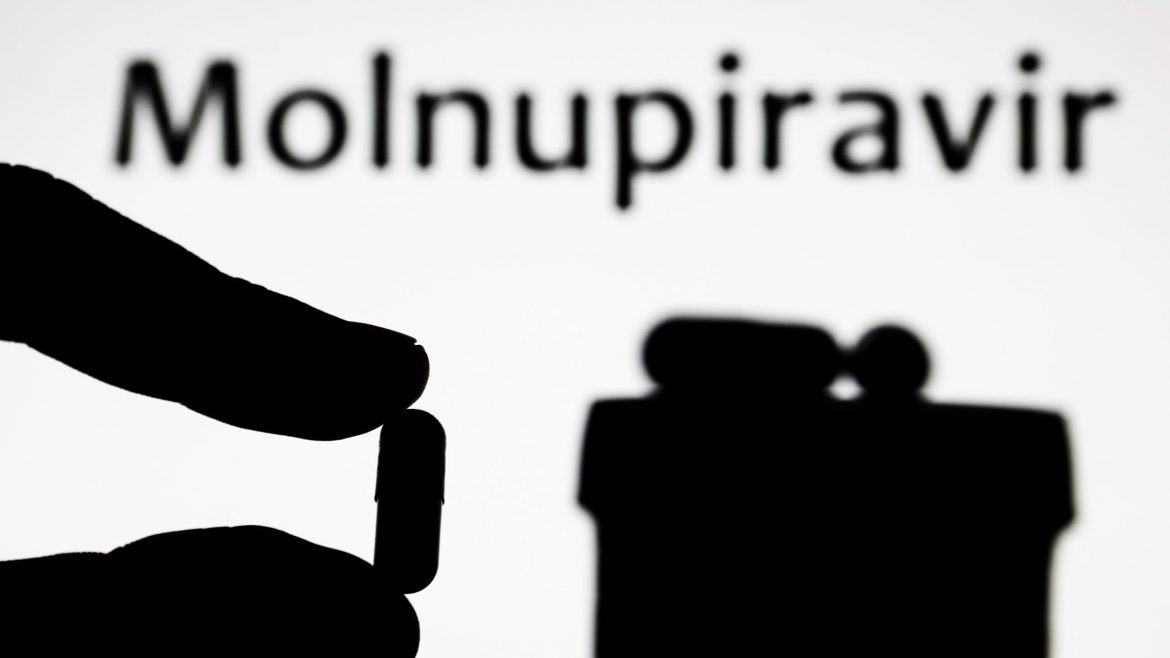It has been a big month in the fight against Covid-19. At the start of November, the first pill designed to treat Covid – Molnupiravir – was approved by the UK’s Medicines and Healthcare products Regulatory Agency (MHRA).
Shortly after, Pfizer (which also developed a successful vaccine against the virus) announced that its own pill – Paxlovid – could cut the risk of hospitalisation or death from Covid-19 by 89 per cent in vulnerable adults. Unlike Molnupiravir, though, it is yet to be approved by the MHRA.
At the start of this month, another new drug – Sotrovimab – which cuts the risk of hospitalisation and death by 79 per cent, was approved for use in the UK for people aged 12 years and older.
With several vaccines being used against the virus in the UK, including those developed by Pfizer, Moderna and AstraZeneca, one might wonder why new treatments are needed.
Rupert Payne, a senior lecturer in primary health care at the University of Bristol, told the Kingston Courier: “Vaccines have been extremely effective at reducing rates of serious infection with Covid, as well as stopping the spread of disease.
“However, there are still significant numbers of fully-vaccinated people who become extremely unwell with Covid, requiring hospitalisation and potentially resulting in death.”
Sotrovimab
Sotrovimab has been developed by London-based company GlaxoSmithKline, in conjunction with Vir Biotechnology in California. The makers say early data shows the drug “retains activity against key mutations” of the new Omicron variant of Covid-19.
Unlike Molnupiravir, Sotrovimab is administered by intravenous infusion over 30 minutes, and has been approved for people with “mild to moderate” disease.
George Scangos, chief executive of Vir Biotechnology, said: “Sotrovimab was deliberately designed with a mutating virus in mind.
“By targeting a highly conserved region of the spike protein that is less likely to mutate, we hoped to address both the current Sars-CoV-2 virus and future variants that we expected would be inevitable.”
Despite Scangos’ optimism, the MHRA has said it is too early to confirm whether the drug will be effective against the new Omicron variant.
Molnupiravir
Molnupiravir was developed by the American drug companies Merck, Sharp and Dohme (MSD) and Ridgeback Biotherapeutics. It is the first anti-viral treatment developed against Covid-19 that can be taken orally rather than be injected.
The drug works by interrupting the virus’ replication. This prevents it from multiplying, keeping virus levels low in the body and reducing the severity of the disease.
According to professor Sir Munir Pirmohamed, chair of the Commission on Human Medicines, the pill could reduce the risk of hospitalisation or death for vulnerable, non-hospitalised adults with “mild to moderate” Covid-19 by half.
The treatment was designed to be given twice a day to vulnerable patients recently diagnosed with the virus, and treatment needs to be started within five days of symptom onset.
Before being circulated among the wider population, the pill will be given to both vaccinated and unvaccinated patients in a national study.
More data will then be collected before the government orders more. So far, the UK has purchased almost 500,000 doses.
Sajid Javid, Health and Social Care Secretary, labelled the pill as a “gamechanger”, and hailed its approval as a historic moment for the UK.
He said: “The UK is leading the way to research, develop and roll out the most exciting, cutting-edge treatments, and my thanks to the expert teams …who have procured the treatment.”
Doctor June Rainer, chief executive of the MHRA, was keen to negate any safety concerns that might exist about the treatment.
She said: “With no compromises on quality, safety and effectiveness, the public can trust that the MHRA has conducted a robust and thorough assessment of the data.”
Pfizer treatment
Just one day after Molnupiravir was approved by the MHRA, Pfizer announced the results from the trial of its own antiviral Covid-19 treatment.
The results show that the pill could cut the risk of hospitalisation or death in vulnerable adults by 89 per cent. Based on the results, three pills should be taken twice a day for five days.
The treatment falls into a category of drugs known as protease inhibitors, which include oral treatments for HIV and hepatitis C.
Specifically, proteases are enzymes that play a crucial role in the process of Covid-19 replicating inside the body. The Pfizer treatment was designed to block this process from taking place, meaning the virus does not replicate and the illness is less severe.
Unlike Molnupiravir, the treatment is yet to be approved by the MHRA.
Javid said of the Pfizer treatment: “If approved, this could be another significant weapon in our armoury to fight the virus alongside our vaccines and other treatments.”
The government has already ordered 250,000 doses.
Impact
The trials suggest that both treatments are effective, and could have a real impact in reducing the severity of Covid-19. More importantly, combined with the vaccination programme, these three new treatments could be exactly what Javid lauded them as – gamechangers.
Payne said: “The introduction of effective antiviral treatments for Covid is very significant. The treatments we currently have for Covid are mainly preventative treatments – vaccines to stop people getting ill in the first place.”
There are also supportive treatments, including oxygen and steroids such as dexamethasone, which keep people stable until the body is able to get rid of the virus itself.
Payne added: “It will take us some time to fully understand who benefits the most from these new drugs, but the hope will be that it allows us to more effectively treat those people who have become seriously unwell with Covid, saving lives, and reducing time in hospital as well as potential complications.”
Essentially, the treatments could work alongside the vaccines, rather than act as an alternative. He emphasised that vaccines remain a crucial part of the fight against Covid-19, and that it is essential for people to get vaccinated and receive booster jabs.





